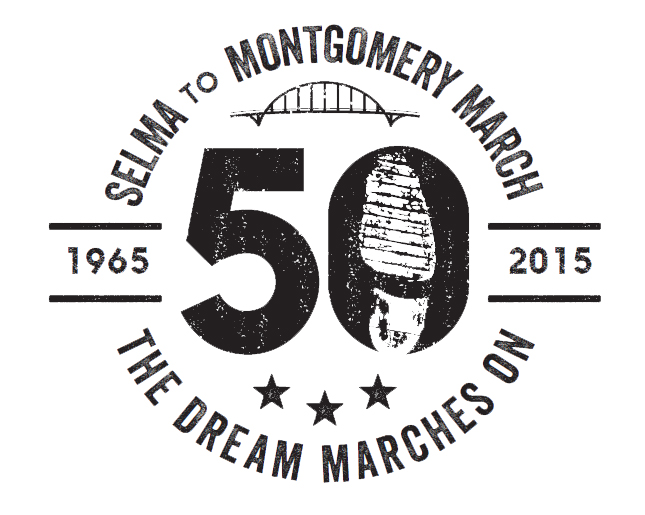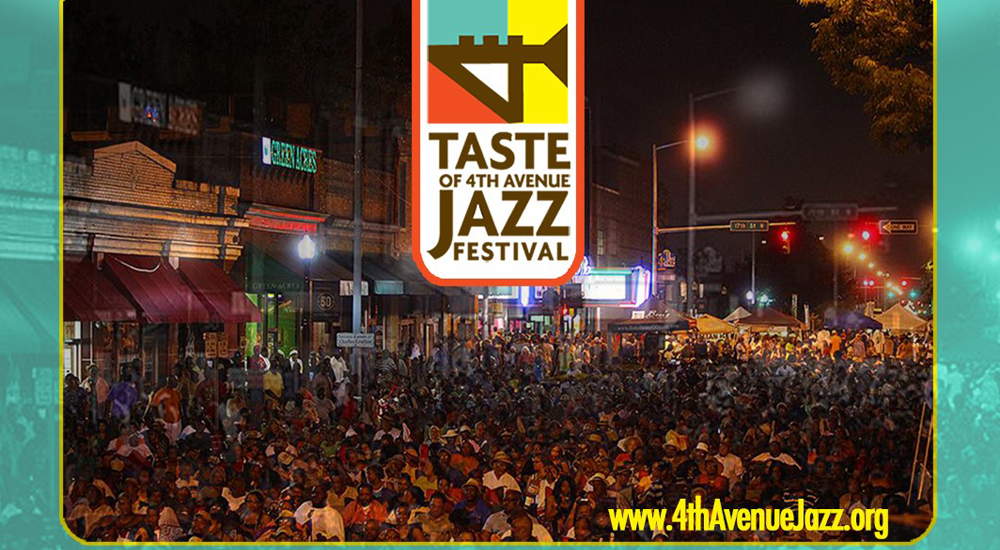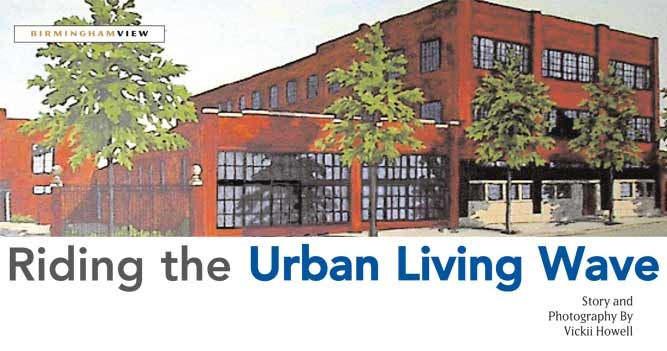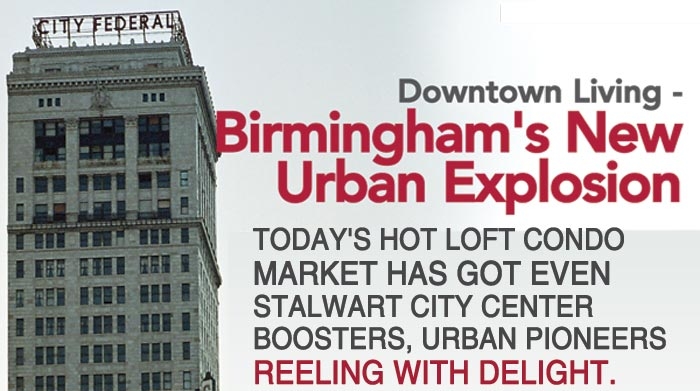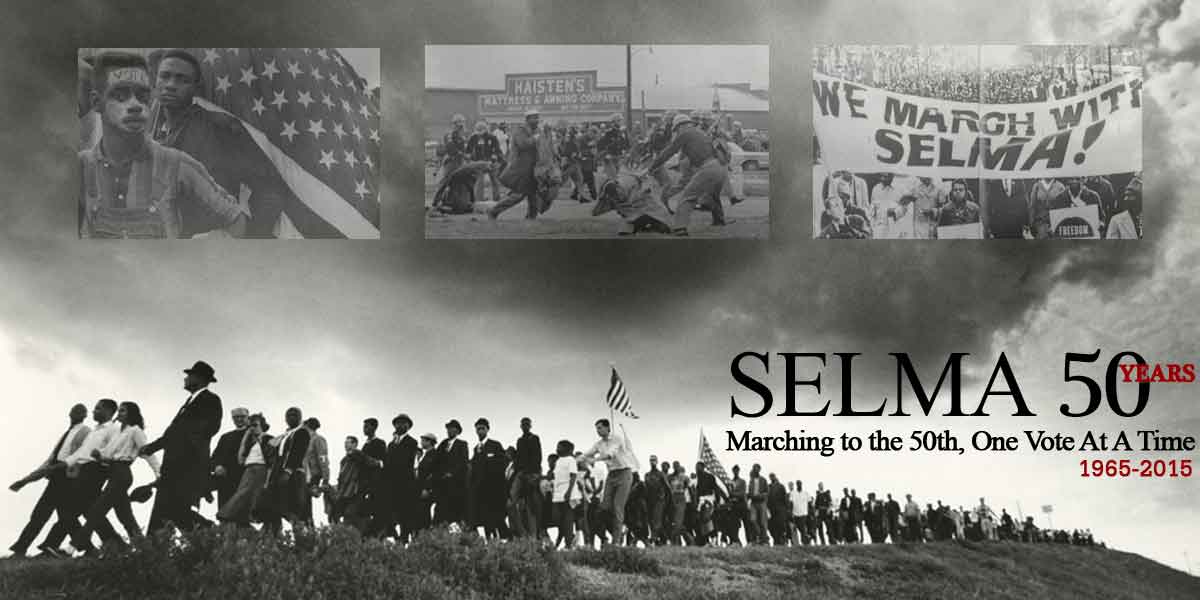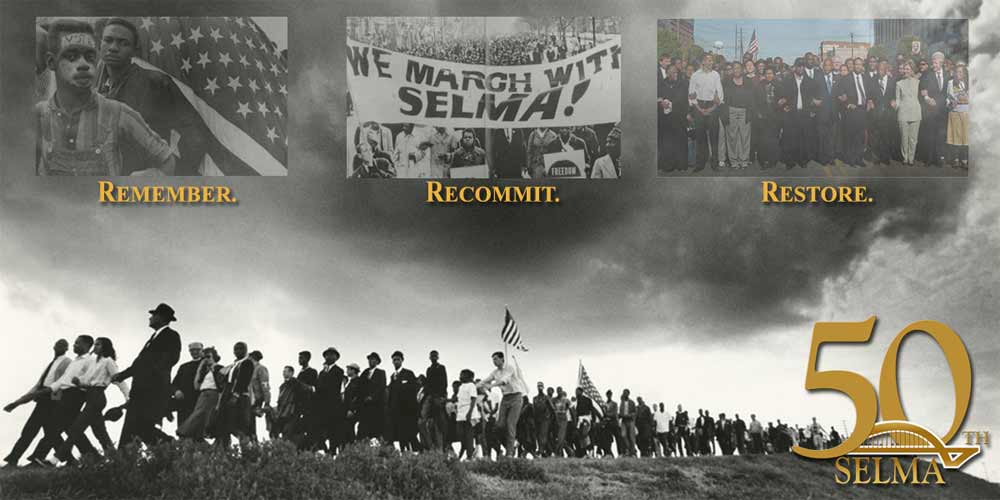Some still wonder whether there are enough people wanting to live Downtown to justify the multi-million dollar loft condo projects currently underway. But the projects’ developers are too busy making plans to profit from Birmingham’s urban living wave to worry about that.
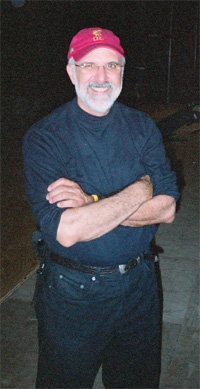
It’s easy to miss the former Oxford Galleries/Heads Commercial Interior buildings near the corner of Second Avenue North and 24th Street. People driving along the one-way street on their way to work or pleasure in Downtown Birmingham could understandably whiz right past the four vacant buildings and not pay them much attention.
But not Leo Ticheli.
He stopped in one day. Upon entering, he didn’t see a dusty, forgotten office furniture store. He saw high ceilings, hardwood floors, exposed brick walls and, outside, gated parking for people who wanted to live there.
Ticheli, who owns a full-service television production company, saw the potential to realize his dream of living Downtown. He also saw the potential to make money.
Demand for Urban Lifestyle
“I have been wanting to do this for many years, and I have been looking for the right building and the right opportunity,” Ticheli says. “I’d say we did this at the right time because five years ago would have been too early . . . We could have bought these buildings for very little money, but the education of the market wasn’t there.
“But I think we got enough people living down here, that, when their friends came to visit, they said, ‘Wow! You live in this beautiful place, you look out your window and see tall buildings. You’ve got a home in the heart of the City and that’s cool.’ That’s what happened,” he says.
So he talked with his brother Ed, a developer in New York, and other backers to buy the group of one-, two- and three-story buildings for loft conversions. “We felt people would want to live down here. There is risk in any business venture. But there are few units available; we have eight left,” he says of the 32 condominiums in what is now the Gallery Lofts.
Real estate marketers Ingram and Associates list sales prices starting from $174,000 and going up to $336,000. The project’s total cost is about $5.5 million.
While they were shopping for Downtown buildings, the Tichelis also bought another two-story building across the street in the part of Massey’s Corral where Ed will build a loft for himself.
And they acquired the 12-story Stonewall-American Life Insurance building at the corner of 4th Avenue North and 23rd Street, one of Downtown’s largest vacant hulks. Every floor is punctuated with 44 windows, with no dark spaces, “so it’s like a huge light box.”
He says other developers have offered more money to buy the 87,500-square-foot building. “It’s tempting, but I don’t want to,” Ticheli says. “I want to be a part of Birmingham realizing its full potential Downtown.”

Supplying the Demand
Loft condominium developments like the Tichelis’ are pre-selling well before construction begins. People are shelling out $5,000 to $10,000 to reserve loft units in the 27 projects currently underway on either side of the City’s major railroad lines that divide the Central Business District from the area called Midtown.
Sales prices for loft condos start as low as $95,000 for those less than 1,000 square feet and go as high as $900,000 for larger penthouses.
The $900,000 penthouse is one of 23 condos planned for the five-story former Jefferson Home Furniture building. The penthouse unit includes a metal garden terrace that wraps around the entire floor and a private elevator, among other upscale amenities.
“The funny thing is, the penthouse was the first one to go. And there is a backup (reservation) on it,” says Don Acton.
| The New Williams Lofts has balconies facing Third Ave North. Seabord Yeard is going up next to the City’s busiest railroad corridor near First Ave South. | 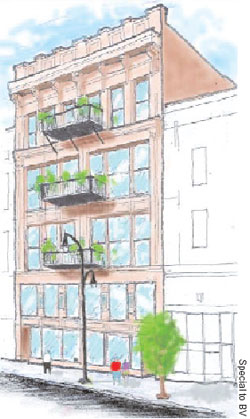 |
Acton and fellow RealtySouth agent, Pete Graphos, are also marketing the New Williams Lofts on Third Avenue North. The $2 million-plus redevelopment of the former women’s clothing store and beauty school will have ground-floor parking, four floors of high-end lofts ranging from $199,000 to $299,000, and a rooftop deck. One loft has two levels of living space.
Acton and Graphos predict all 23 units in the Jefferson Lofts and all 15 in the New Williams Lofts will be bought and occupied shortly after they’re finished in about a year, before other conversion projects are finished.
Those buying for investment purposes stand to make huge returns because of the hot Downtown condo market, Acton and Graphos say. One of their clients made a nice profit when they recently sold a loft condo the client bought just last year.
Acton and Graphos have been actively selling in Downtown for three years and they are enthusiastic about the “tremendous” changes they are seeing already.
“It’s gone from having buildings you couldn’t give away three years ago and paying $50 dollars a year for property taxes on them to paying thousands of dollars in taxes on them. That can’t be anything but a shot in the arm to the City of Birmingham. And at a time when Birmingham is losing population, it is gaining new property taxes. So this is great for them,” Graphos says.
“This is one of the most exciting things we have ever been involved in.”
New Construction
Downtown Birmingham’s new condominiums are not limited to conversions of historic buildings. Several of the bigger loft projects are being built from the ground up.
The first and largest under construction is Bristol Southside, a new mid-rise development in Midtown with 156 condominiums.
Ashlyn Hines, a principal of Nashville-based Bristol Development Group, and David Hanchrow, Bristol’s vice president of development, say they happened to be driving through the City on other business last year when they saw the old Tom Williams location near 20th Street and Fourth Avenue South. Immediately, they called their broker to find out more about the site.
“It was such an obvious location, and there is no residential development around it – something that has amenities, swimming pools, courtyards, a really nice fitness center – all the things people use that can contribute to an urban lifestyle.”
Bristol Southside features those amenities and others, including high-end kitchens, high-ceilings, cable with high-speed internet connections, and secured parking. Condo prices in the $16 million development range from $98,900 to $424,900.

An artist rendering of Bristol Southside, the city’s first new condominium project Downtown. The mid-rise development broke ground in July.
“We build high-end urban communities that don’t exist in markets like Birmingham, residences with great amenities and walkable locations,” Hines says “We look at a location and put in the coolest thing that makes economic sense.”
The Bristol developers believed they found just the right spot at the right time, based on the urban living resurgence they saw in other cities and on what they saw happening in Birmingham.
Hanchrow says pop culture television shows such as Friends and Sex in the City have attuned people’s eyes to seeing city living as cool and glamorized the idea of walking to coffee shops and hanging out at neighborhood bars and restaurants.
He says Birmingham’s local economy is relatively stable and its urban market, especially its condo market, is particularly strong in a time of low-interest mortgage rates, when people can build equity as loft owners rather than renters.
Plus, in a time of soaring gas prices, urban living allows people to be closer to work and leisure, making them less car dependent and giving them more time. “All you have to do is sit in one good traffic jam on (U.S.) 280 to know why people want to live in town,” Hanchrow says.
A local development group is building new too, the ambitious Railroad Reservation Lofts.
The $40 million, 11-story, new construction project on First Avenue South will include 147 condominium units in its first phase, half of them apartment rentals and the other half condos for sale, says Robert Simon of Corporate Realty Development, the lofts’ developer.
Its ground floors are targeted for retail businesses such as restaurants and a European market that are expected to serve its residents and workers from the nearby UAB’s medical complex. The development will sit across from what may likely be another ambitious project.
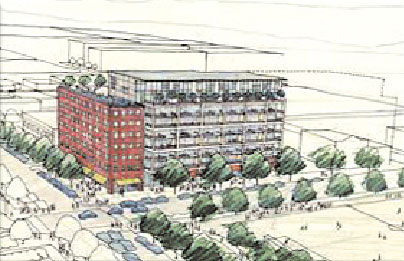
“The City is adopting a (Downtown) master plan with one very important amenity – the Railroad Reservation Park,” Simon says “It’s very important that the City spends money on parks and that people are encouraged to use them. That’s what this is about – quality of life.”
Simon says new construction projects allow developers to control costs better than a renovation project, where unexpected surprises can be expensive. But it also allows them to create a loft dwelling with upgraded amenities, yet maintain an urban look and feel.
“We define urban as great lighting, good use of space, high ceilings, big windows, brick and exposed steel,” Simon says. “You’ll see rooftop decks with swimming pools, (hi-tech) media room and fitness center on the property. . . It will be all of that. We’re very focused on amenities in our developments.”
The growing number of mixed-use residential, retail and cultural developments will begin to spur the 24-7 activity that will shape the fabric of urban living in Birmingham, Simon says

Another Condo Style 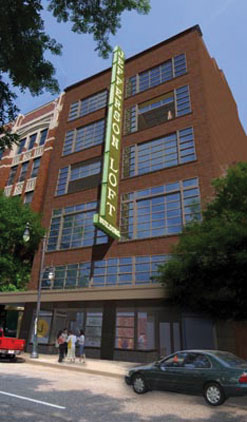
Not every urban dweller wants wide open spaces usually associated with loft interiors, says John Lauriello of Southpace Properties, who with his partners are building a dozen boutique condominiums.
“The first floor will be a traditional, lofty area. The second floor has bedrooms with walls and enclosed bathrooms,” he says. “It’ll still have the urban feel, but it will be a little more polished because a lot of people don’t like the raw lofts.”
The twist to this lovely little $10 million development on First Avenue South is that it sits right along Birmingham’s busiest railroad corridor, of all places. It gets its name, Seaboard Yard, for the old yard where railroad companies kept box cars and other equipment.
Lauriello considers the comings and goings of passenger and freight trains a unique amenity in addition to the City skyline. Seaboard Yard is a block from the Pepper Place Farmers Market, Sloss Furnaces, antique stores, restaurants and other lifestyle amenities within walking distance.
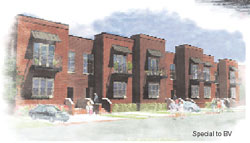
The Seaboard Yard site also includes two new buildings: a law office and the living /office space of husband-and-wife architects Tammy Cohen and Richard Carnaggio.
“So what we have developed is this wonderful mixed-use product right in the heart of Birmingham,” Lauriello says.
Vision of the Future
Lauriello says urban living in Birmingham is destined to thrive, considering all the residential projects such as the $6-million, new-from-the-ground-up Pullman Flats condominiums (which are all reserved), not to mention the other commercial and retail projects along First Avenue South and the rest of Downtown.
“It will mean more people, more shops, more restaurants. We’re really well on our way in spite of ourselves. It’s really been amazing,” he says.
“In five years, we will have a vital central business district that is beyond our wildest imagination . . . Everybody wins, for people with low to moderate incomes to people with high incomes. If you have a strong city center, it makes the surrounding neighborhoods better.”
Leo Ticheli shares Lauriello’s optimism about Downtown and city living.
“Five years from now, there will be festivals with antiques, music, food and arts and crafts. You can come to any (cultural activity) Downtown – it’ll be packed with people having a good time. You’ll see women pushing baby carriages. You’ll see people out walking their dogs or jogging,” Ticheli says. “We’re not far from having the critical density where downtown ex-plodes,” he says for emphasis.
“This (urban living) is not for everybody. But for people who are a little more adventurous and who enjoy this kind of life, it’s heaven.”
For more information on the Bristol Southside development, visit its website, www.bristolsouthside.com. Learn more about the other developments at www.theCondominiumShoppe.com![]()


